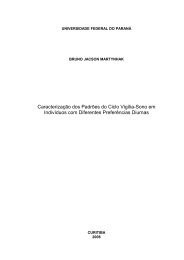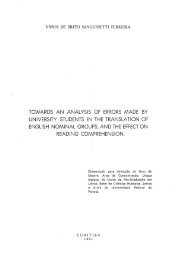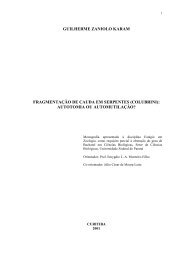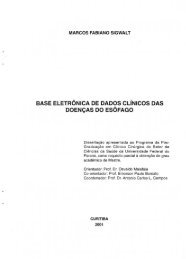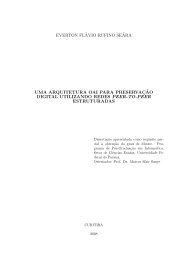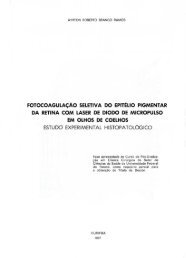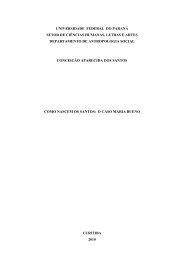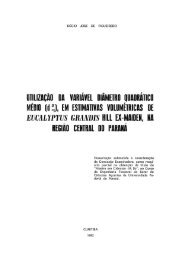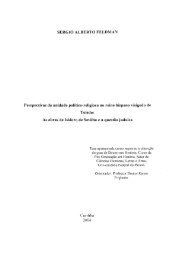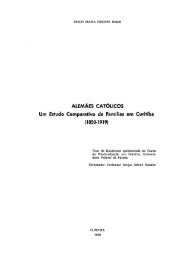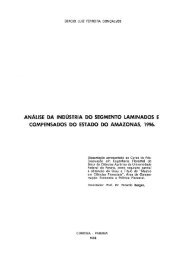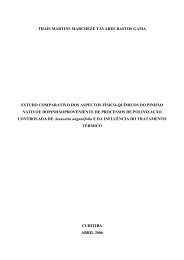D - PUGSLEY, MARISTELA.pdf - DSpace - Universidade Federal do ...
D - PUGSLEY, MARISTELA.pdf - DSpace - Universidade Federal do ...
D - PUGSLEY, MARISTELA.pdf - DSpace - Universidade Federal do ...
Create successful ePaper yourself
Turn your PDF publications into a flip-book with our unique Google optimized e-Paper software.
3 2<br />
advertisers often "break the rules of English" in such ways<br />
as: spelling words incorrectly, coining new words, shifting<br />
them from one class to another, blending two words to form a<br />
new one, making puns and ambiguous statements. This idea<br />
of "breaking the rules of English" leads us into a<br />
discussion which is central to our work: the question of<br />
acceptability x deviation.<br />
The acceptability of a sentence is often defined in<br />
terms of its grammaticality; for example, the sentence<br />
"Many intelligent people still equate happiness with fun" is<br />
acceptable because it is grammatical. However, the fact that<br />
a sentence is grammatical <strong>do</strong>es not mean that it is acceptable<br />
in all contexts. The greeting "How's it going, pal?" is<br />
appropriate in a conversation between friends but not between<br />
people who are just being introduced at a formal dinner,<br />
where the etiquette would call for "How <strong>do</strong> you <strong>do</strong>, sir?". The<br />
contrasts between colloquial and formal speech, between<br />
spoken<br />
and written language, between legal, religious, scientific<br />
and other varieties of language help determine the<br />
appropriateness of the utterance.<br />
Linguists have tried to devise techniques for judging<br />
acceptability but, according to STRANG (1968), "though there<br />
are clear-out cases, their is also a considerable area in<br />
which acceptability is not a matter of yes-no, but of moreless."^<br />
In addition to this, STRANG presents part of Angus<br />
Mcintosh's study in Patterns and ranges (McINTOSH &<br />
HALLIDAY, 1966) where he distinguishes, in terms of their<br />
acceptability, three kinds of sentences:"



